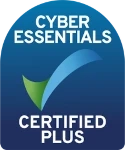15
+
YEARS OF
EXPERIENCE
1000
+
SUCCESSFUL
Projects
80
+
Satisfied
Clients

Endpoint Protection Policies: A Comprehensive Guide for Organizations
In today’s rapidly evolving digital landscape, securing endpoints—such as laptops, desktops, and mobile devices—is critical for maintaining an organization’s overall security posture. Endpoint Protection Policies are essential tools for managing and safeguarding these devices against various threats. At TechCloud IT Services L.L.C., also known as Cloud Technologies, we specialize in helping organizations design and implement effective endpoint protection policies that align with their security goals. This guide will provide an in-depth understanding of endpoint protection policies, their importance, key components, and best practices for implementation.
Understanding Endpoint Protection Policies
Endpoint Protection Policies refer to a set of security measures and configurations designed to protect endpoints from unauthorized access, data breaches, malware, and other cyber threats. These policies govern how devices are managed, monitored, and secured within an organization’s network. By implementing robust endpoint protection policies, organizations can mitigate risks, enhance compliance, and safeguard sensitive data.
Why Are Endpoint Protection Policies Important?
- Increasing Threat Landscape: The rise in cyberattacks, including ransomware, phishing, and advanced persistent threats (APTs), necessitates strong endpoint protection policies to defend against evolving threats.
- Remote Work Challenges: With the increase in remote work, endpoints are often outside the traditional corporate network. This requires enhanced protection measures to secure devices that may be exposed to various risks.
- Compliance Requirements: Many industries are subject to strict regulatory requirements regarding data protection. Effective endpoint protection policies help organizations comply with these regulations, minimizing the risk of penalties.
- Data Security: Endpoints are common targets for data breaches. Implementing policies that protect sensitive data stored on these devices is crucial for maintaining customer trust and protecting the organization’s reputation.
- Operational Continuity: Cyber incidents can lead to significant downtime and financial loss. By establishing robust endpoint protection policies, organizations can enhance their resilience and ensure operational continuity.







Key Components of Endpoint Protection Policies
1. Device Management
Effective endpoint protection begins with comprehensive device management. Organizations must establish policies for enrolling devices, monitoring their status, and managing software updates. Key considerations include:
- Enrollment Procedures: Define how devices will be enrolled in the security management system.
- Asset Inventory: Maintain an inventory of all endpoints to ensure visibility and control over devices within the organization.
- Software Updates: Implement policies for regular software updates to patch vulnerabilities and ensure devices remain secure.
2. Security Configuration
Endpoint protection policies should include detailed security configurations that address various aspects of device security. Key configurations include:
- Firewall Settings: Establish rules to control incoming and outgoing network traffic, protecting endpoints from unauthorized access.
- Antivirus and Anti-malware: Require the installation of reputable antivirus and anti-malware solutions to detect and respond to threats in real time.
- Encryption: Enforce encryption for sensitive data stored on devices, ensuring that even if data is compromised, it remains unreadable to unauthorized users.
3. Access Control
Controlling access to endpoints and sensitive data is a crucial component of endpoint protection policies. Key access control measures include:
- User Authentication: Implement multi-factor authentication (MFA) to verify user identities before granting access to sensitive systems and data.
- Role-Based Access Control (RBAC): Define user roles and permissions to limit access to only those resources necessary for job functions.
- Session Management: Monitor user sessions and implement automatic timeouts for inactive sessions to reduce the risk of unauthorized access.
4. Threat Detection and Response
Endpoint protection policies should include mechanisms for detecting and responding to security incidents. Key components include:
- Intrusion Detection Systems (IDS): Deploy IDS to monitor network traffic and identify suspicious activities.
- Security Information and Event Management (SIEM): Use SIEM solutions to aggregate and analyze security logs for real-time threat detection.
- Incident Response Procedures: Develop and document incident response procedures to guide the organization in responding effectively to security incidents.
5. User Training and Awareness
Employee training is a critical component of endpoint protection policies. Users should be educated on security best practices, including:
Reporting Incidents: Encourage employees to report any suspicious activity or potential security incidents promptly.
Recognizing Phishing Attempts: Train employees to identify phishing emails and suspicious links to reduce the risk of successful attacks.
Safe Browsing Practices: Educate users on safe browsing practices to minimize exposure to malware and malicious websites.
InTune Security
Microsoft InTune security enhances device compliance, data protection, and access control for modern business environments.Security Audit for InTune
Conduct a security audit for InTune to identify vulnerabilities, optimize settings, and enhance overall protection.How to Improve Defender Score
Enhance your Defender Score with proactive security measures, compliance improvements, and risk reduction strategies.
Best Practices for Implementing Endpoint Protection Policies
1. Conduct a Risk Assessment
Before implementing endpoint protection policies, organizations should conduct a thorough risk assessment to identify potential vulnerabilities and threats specific to their environment. This assessment will inform the development of tailored policies that address the organization’s unique security needs.
2. Define Clear Policies
Endpoint protection policies should be clearly defined and communicated to all employees. Ensure that the policies are accessible and understandable, outlining the expectations for device usage, security measures, and reporting procedures.
3. Regularly Review and Update Policies
Cybersecurity is an ongoing process, and endpoint protection policies should be regularly reviewed and updated to address emerging threats and changes in the organizational environment. Schedule periodic reviews to assess the effectiveness of current policies and make necessary adjustments.
4. Leverage Automation
Utilize automation tools to streamline the management of endpoint protection policies. Automated solutions can help enforce compliance, deploy updates, and monitor security incidents, reducing the burden on IT teams.
5. Monitor Compliance
Regularly monitor compliance with endpoint protection policies to ensure that devices are configured correctly and that users adhere to security protocols. Non-compliance should be addressed promptly to mitigate risks.
6. Foster a Security Culture
Cultivating a security-first culture within the organization is crucial for the success of endpoint protection policies. Encourage employees to prioritize security in their daily activities and empower them to take an active role in protecting organizational assets.





Conclusion
Endpoint Protection Policies are vital for organizations seeking to safeguard their devices, data, and overall cybersecurity posture. By implementing robust policies that encompass device management, security configurations, access control, threat detection, and user training, organizations can effectively mitigate risks and enhance their resilience against cyber threats. At TechCloud IT Services L.L.C., also known as Cloud Technologies, we are dedicated to helping businesses design and implement effective endpoint protection policies tailored to their unique needs.
Investing in endpoint protection policies is not just a technical necessity but a strategic imperative for organizations looking to thrive in today’s digital landscape. For more information on how to enhance your organization’s endpoint security, contact TechCloud IT Services L.L.C. today.
As a result of increasing number of business expanding to the United Kingdom market we are offering services of Endpoint Protection Policies in London

answer time
satisfaction
score
on initial call
same business
day





